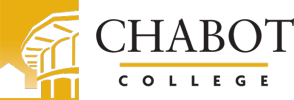
Information Technology (AS)
This program map from the 2024-2025 catalog year represents one possible pathway to complete this program. Your pathway may vary depending on your transfer plans and also previous college credit, including AP Test scores, concurrent enrollment courses and high school articulated courses.
I'm ready to get started. What do I do next?
- Review this program map to get an overview of the required courses
- Meet with a counselor to develop your customized student education plan www.chabotcollege.edu/counseling
- Use DegreeWorks, an online student education planning tool, to track your progress toward graduation www.chabotcollege.edu / admissions / degreeworks
The Associate in Science in Information Technology covers a core foundational set of Information Technology concepts and has three concentration options in the program: Cloud Computing, CyberSecurity and Networking. Additionally, this program covers a wide range of general education courses giving the student the required prerequisites for transferring or to receive a well balanced education.
What can I do with this major?
Upon completion of this degree, students can sit for a number of industry certification exams and attain employment in the field of information technology including: Desktop Support, System Administration, Cloud Computing, CyberSecurity and Networking.
Learning and Career Pathway
- Business, Economics & Information Technology
Icon Key
Semester 1
CAS
83
Information & Communication Technology Essentials
CAS
92A
Introduction to Networks
English 1- Critical Reading and Composition
Elective- see a counselor to choose a course that counts for elective units (can be any credit course).
Semester 2
Take one course depending on the concentration:
CAS
85
AWS Cloud Foundations and Security1
CAS
69
Introduction to Information Systems Security (Security+)2
CAS
92B
Routing and Switching Essentials3
Mathematics course: see a counselor to choose the appropriate general education math course.
General Education Course- see a counselor to choose the appropriate general education pattern and general ed course option for this term. CAS 50 is recommended (counts towards CSU Area D)
General Education Course- see a counselor to choose the appropriate general education pattern and general ed course option for this term.
Elective- see a counselor to choose a course that counts for elective units (can be any credit course).
Semester 3
Take One Depending on the Concentration:
CAS
86
Information Storage and Management1
CAS
75
Introduction to Cybersecurity: Ethical Hacking (Whitehat Hacker)2
CAS
92C
Scaling Networks3
General Education Course- see a counselor to choose the appropriate general education pattern and general ed course option for this term.
General Education Course- see a counselor to choose the appropriate general education pattern and general ed course option for this term.
Elective- see a counselor to choose a course that counts for elective units (can be any credit course).
Elective- see a counselor to choose a course that counts for elective units (can be any credit course).
Semester 4
Take One Depending On The Concentration:
CAS
92B
Routing and Switching Essentials1
CAS
76
Wireshark, TCP/IP Analysis and Network2
CAS
92D
Connecting Networks3
General Education Course- see a counselor to choose the appropriate general education pattern and general ed course option for this term.
General Education Course- see a counselor to choose the appropriate general education pattern and general ed course option for this term.
Elective- see a counselor to choose a course that counts for elective units (can be any credit course).
Elective- see a counselor to choose a course that counts for elective units (can be any credit course).
Other (specify)
Select one concentration below for a total of 3 classes (9 units):